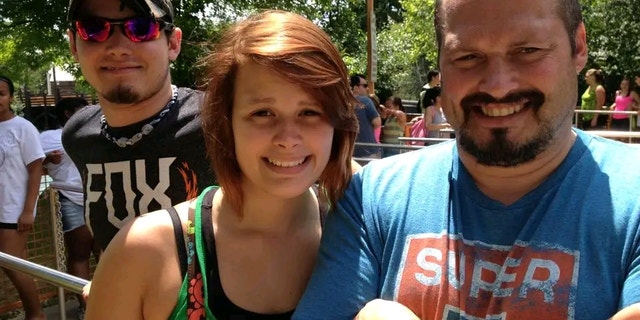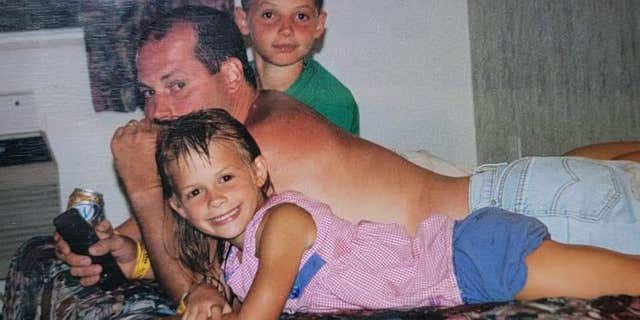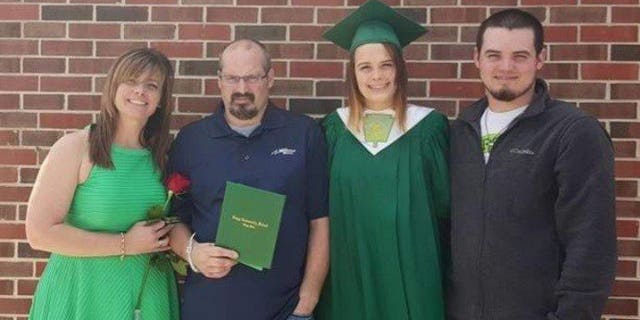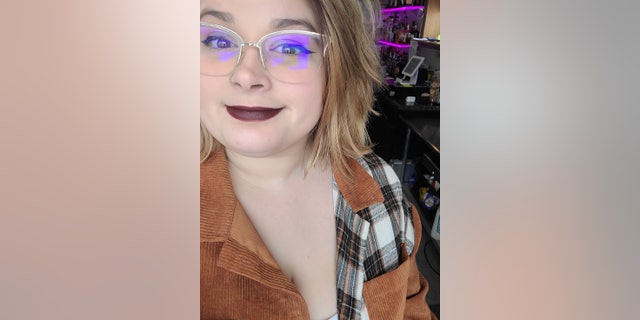Alyssa Nash, 27, of Northern Iowa, is a healthy, energetic young woman with a bright smile and a deep love for her family. She enjoys ceramics, painting and working as a receptionist at a local hospital.
But underneath her happy exterior, Nash carries a quiet fear of turning into someone she no longer recognizes.
Seven years ago, when she was just 20, Nash learned she’s a carrier for a gene mutation that can cause FTD (frontotemporal dementia), an early-onset neurodegenerative disease that most commonly impacts people as early as their 30s, 40s and 50s.
WHAT IS FRONTOTEMPORAL DEMENTIA, THE DIAGNOSIS BRUCE WILLIS HAS RECEIVED?
Common signals of the disease include personality changes, difficulty speaking and understanding language, trouble with decision-making and a lack of empathy.
Dr. Tiffany Chow, neurologist and vice president of clinical development at the biotechnology company Alector in South San Francisco, California, is an expert in this type of dementia.
“Unlike Alzheimer’s disease, FTD causes a drastic turnaround.”
“Unlike Alzheimer’s disease, FTD causes a drastic turnaround,” Chow said. “So the nicest people become the most obnoxious people. It’s a marked difference that affects everything in terms of how the world perceives you and how you perceive the world.”
AI TOOL GIVES DOCTORS PERSONALIZED ALZHEIMER’S TREATMENT PLANS FOR DEMENTIA PATIENTS
From a clinical standpoint, FTD is devastating to families, the doctor said.
It was seven years before Nash’s father was officially diagnosed.
“We went through years of unknowns and questions,” Nash said.

Nash, pictured with her father and brother, was just 20 years old when she found out she is a carrier for a gene mutation that can cause FTD (frontotemporal dementia). (Alyssa Nash)
Along with her mother and brother, Nash helped care for her dad as his dementia progressed, even as she struggled to hide his condition from everyone at her high school.
And by the time they are identified, the condition has usually progressed to the later stages, she said.
Ty had a similar experience when her own father began exhibiting symptoms of dementia.
“We should be doing cognitive testing as part of primary care.”
In most cases, Ty said, it’s not until there is some sort of accident or incident that the affected person is brought in for testing.
INTERNET USE BY SENIORS ON REGULAR BASIS COULD SLASH THEIR DEMENTIA RISK, STUDY SUGGESTS
“That’s just not acceptable,” she said. “We should be doing cognitive testing as part of primary care, not unlike getting a mammogram or a colonoscopy. It should be part of the annual wellness visit.”
Most genetic FTD cases are caused by a mutation in one of three genes: C9ORF72, MAPT or GRN.

“The biggest challenge was seeing him change completely into someone else and become someone I never thought he could be,” Nash said of her father, who began showing symptoms of FTD at just 38 years old. She’s pictured here as a child (in front) with her dad and brother. (Alyssa Nash)
Chow noted that 30% to 40% of patients living with FTD carry these genetic mutations or variants.
“That’s where genetic counseling becomes important,” she said. “The genetic counselor will often talk about the pros and cons of knowing this information and run through the scenarios if the test comes out positive.”
As soon as Nash’s father was diagnosed and Nash found out the condition was genetic, she knew she wanted to find out whether she was a carrier of the mutation.
“I needed to know, because for so many years, I wasn’t in control,” she told Fox News Digital. “I needed to make a plan. This was a chance to be in control of myself.”
She added, “When they said I had the option for genetic testing, I said, ‘Sign me up.’”

Nash, pictured in cap and gown at her high school graduation with her family, helped to care for her dad as his dementia progressed, even as she struggled to hide his condition from everyone at school. (Alyssa Nash)
At first, Nash had processed the news as if it was a diagnosis. But over the years, she found that the knowledge helped her appreciate even the smallest details of day-to-day life.
“Now I feel empowered by this knowledge,” Nash told Fox News Digital. “It’s going to help more than I could possibly imagine. That flip of the brain was definitely needed.”
Nash said she appreciates having the ability to share her discovery with her loved ones — the people who would be most affected, ultimately, if her predisposition led to a diagnosis down the road.
“I wouldn’t want my worst enemy to have to go through what I went through without having the answers,” she said.
Dementia treatments in the pipeline
Although there are therapies that can treat the symptoms of dementia — in an attempt to make people less anxious or less restless — there are no disease-modifying therapies currently approved by the FDA, Chow said.
“There are several experimental therapies being studied that are designed to target specific genetic mutations for FTD,” said Chow.
Given her young age, Nash said she is hopeful that dementia treatments may become available in time to benefit her.

“Now I feel empowered by this knowledge,” Nash told Fox News Digital about finding out she carries the genetic mutation for FTD. “It’s going to help more than I could possibly imagine.” (Alyssa Nash)
“That time difference presents an opportunity to apply a disease-modifying therapy once one has been approved, because the earlier you start a therapy that has been proven efficacious and safe, the better chance you have of not developing symptoms once you reach 50 or 60,” Chow said.
“And that’s what makes it so empowering.”
“A recent survey showed that there’s a reluctance among physicians to have the conversation and do the testing because there’s this assumption that ‘there’s nothing we can do,’” she said. “But I think that’s going to change with the introduction of some of these new therapeutics.”
“In the next 10 years, I hope to see exciting changes in the way we detect, diagnose and treat dementia,” she added.
“If those were managed, you could reduce 40% of dementia worldwide,” Ty said.
Looking ahead: ‘Excited for my future’
For those who are facing a similar struggle, Nash’s advice is to not bottle up all the emotions that come with it and to seek mental health care.
“Put your feelings out there,” she recommended. “It’s okay not to be okay at times. It’s a heavy thing to carry, but knowledge is power.”
“You can make a plan,” she went on.
“For me, I’m going to do everything I can to help people and to help myself.”
CLICK HERE TO SIGN UP FOR OUR HEALTH NEWSLETTER
For a long time after discovering her mutation, Nash had dwelled on the idea that she “only had so many years” before her dementia symptoms would begin. Over the past couple of years, however — with the help of her family support system and regular counseling sessions — she has adopted a new mindset.
“I found myself again,” she said. “I have a gosh-darn future, and I can’t wait for it.”


